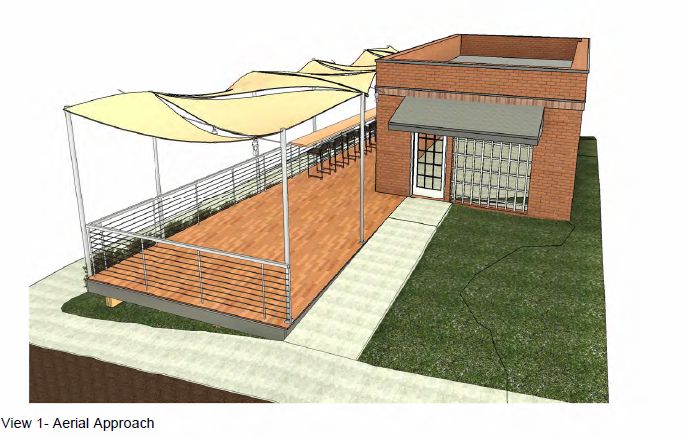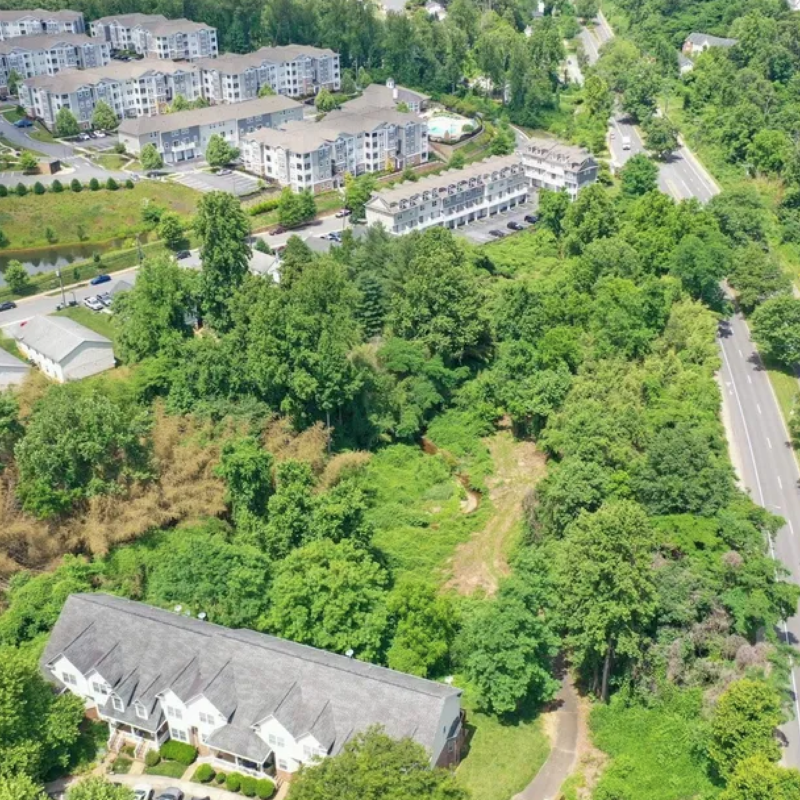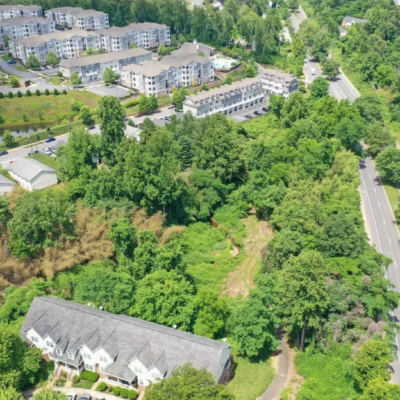Almost a year has passed since Charlottesville’s new zoning code went into effect and staff in the city’s Department of Neighborhood Development Services continue to process applications despite a pending lawsuit.
At least 107 different types of plans have been filed since February 19, 2024, when the new system was put in place. This includes around a dozen “major development plans,” which would have been treated as rezoning applications under the old zoning rules.
On January 30, 2025, city staff approved a plan to replace a five-unit building at 1609 Gordon Ave. with a nine-unit building. If the developer had wanted to build a 10th unit, it would have been required to be provided at below-market rate, per the city’s affordability rules.
NDS staff have not yet approved a plan at 303 Alderman Rd. that would see a single-family home replaced with six townhouses, only because all of the technical requirements have not yet been met. Other plans under review include a classroom addition at Pilgrim Baptist Church, a dozen townhouses on Hillcrest Road, and six units on St. Clair Avenue. Half the units in the latter project would need to be affordable in order to trigger the bonus density allowed in the new code.
Other projects have sought special exceptions from various requirements in the Development Code. These permits require a public meeting before appointed and elected officials, but not a public hearing.
On February 11, the Planning Commission reviewed an exception that would allow Cumbre Coffee & Bakery to build a railing on a new deck at its Jefferson Street café. That would be considered a fence, which is not allowed on side yards in the city’s Node Mixed Use 10 zoning district unless City Council issues an approval.
The Planning Commission also reviewed an exception requested by the Piedmont Housing Alliance for the third phase of the redevelopment of Friendship Court into Kindlewood Apartments. The nonprofit wants to modify requirements for “street-facing entries” that code said is necessary in a multifamily residential building.
“Direct exterior unit access along busier streets like Second Street SE and Monticello Avenue creates concern among residents about a child or dependent getting outside without proper supervision,” reads a January 28, 2025, letter from architects with Grimm + Parker, a lead consultant on the project.
Another special exception permit filed in late January is the first official submission from Heirloom Development to replace the Downtown Mall’s Violet Crown Cinema with a 184-foot-tall apartment building. The Board of Architectural Review has had three discussions for the space at 200 W. Main St., but those were preliminary reviews with no official vote.
The new code requires something called “active depth” on lower floors, which is intended to limit blank walls and encourage a robust streetscape. In the request, Heirloom’s Jeffrey Levien argues that the requirement will prevent him from being able to provide parking for the building.
In response, the city said he had yet not filled out a complete application for the project. That would likely take the form of a major development plan to allow staff to conduct a full review.
On February 6, 2025, Charlottesville Circuit Court Judge Claude Worrell said he would not recuse himself from a lawsuit filed in January 2024 seeking to overturn the case. An attorney for the plaintiffs argued Worrell had the appearance of conflict of interest due to being a Charlottesville homeowner and because his wife is active in local politics. Worrell said he was offended by the motion, and said he would remain on the case. The next court hearing is on March 26, 2025.





